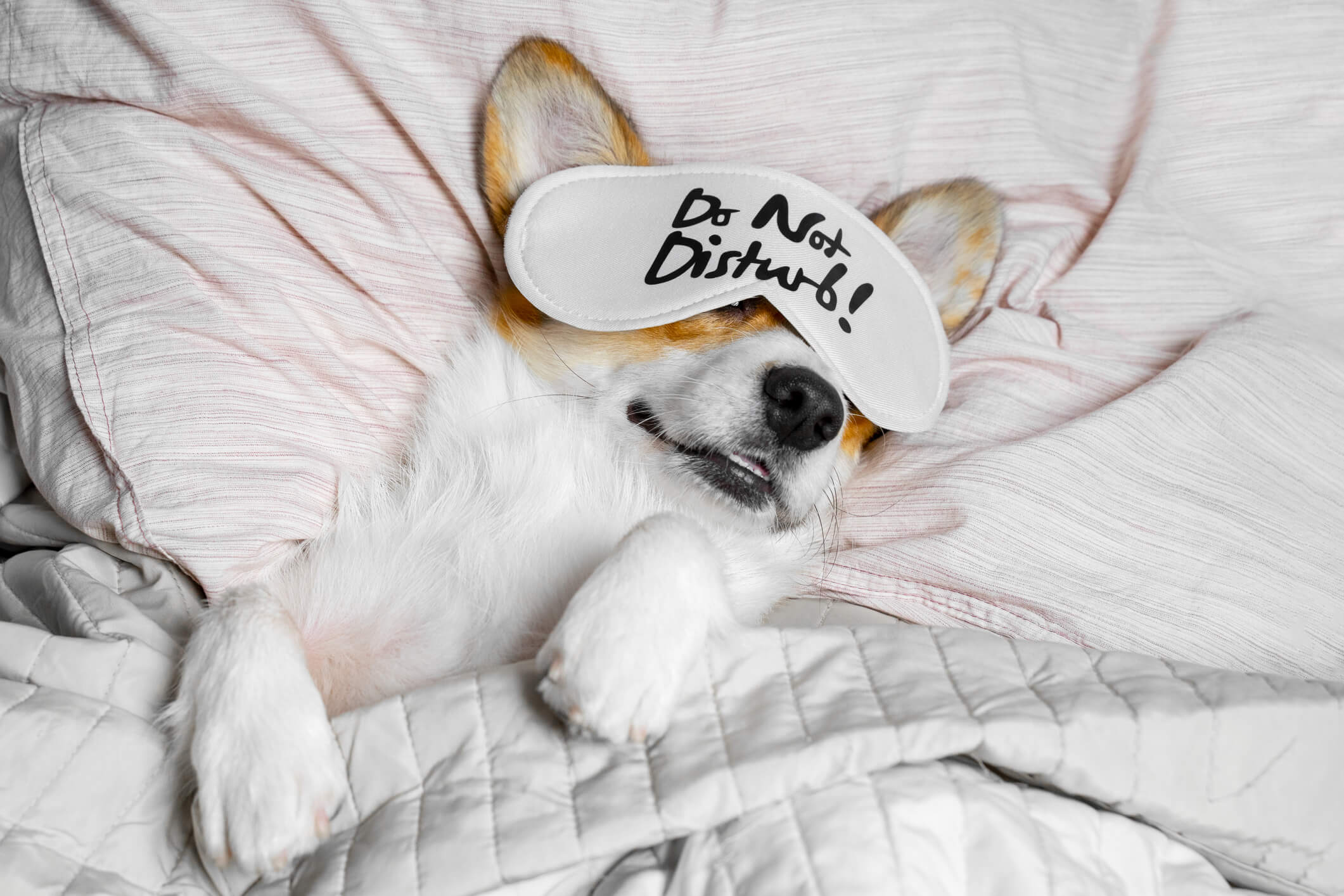
Puppies and Sleep: How Much is Too Much?
Much like human babies, puppies need a lot of sleep. When they aren’t being adorable and tottering or zooming throughout the house, your new puppy can probably be found curled up in bed or on your lap, taking a snooze.
However, pet parents know that lethargy and excessive sleepiness is a common sign of illness in pets. So, how are you to know if your puppy is super sleepy, or if they’re sick?
Here’s the important puppy information you need to know.
How much is too much sleep?
During your puppy’s first few months of life, you might be worried that they’re sleeping way too much to be healthy. In reality, that’s not true! Puppies sleep an average of 16 to 20 hours every day.
Sleep is a critical component of your puppy’s healthy development. While your puppy sleeps, their brain and nervous system develop important neurological pathways, their muscles grow, and their immune system fortifies itself against harmful invaders. Their memories also work overtime during sleep to process and store all the new information they received during the day.
The amount your puppy will sleep each day might vary as they age. Newborn puppies spend almost the entire day snoozing (around 22 hours). By about three months old, puppies are able to stay up for more longer, but they still need a lot of sleep! Your puppy will continue to have growth spurts until they reach around a year old, meaning they’ll continue to need frequent naps as they age.
However, there does come a point where puppies get too much sleep. The best way to understand this is to gauge it against how active your puppy is when they are awake.
Your puppy might fall into a deep and peaceful slumber and be difficult to rouse for hours at a time, but are they active and energetic once their naptime ends? If so, your puppy is probably perfectly healthy! It’s when puppies are awake but refuse to play and explore or seem lethargic that you should be concerned.
Additionally, if your puppy is sleeping more than 20 hours each day, you should probably reach out to your vet. A little more than 20 hours might not be abnormal if they’re playing hard throughout the day, but closer to 24 hours of sleep is probably related to a health problem. Keep a close eye on your puppy’s sleeping patterns so you can detect any sudden changes in activity and sleeping hours. Any abrupt changes should be discussed with your vet.
Tips for helping your puppy sleep
It’s more likely that you’ll have trouble getting your puppy to sleep enough. With all the excitement of your home—new toys, tons of things to explore and new people to meet—your puppy might be too riled up to take a nap! You’ll want to encourage your puppy to sleep so that their tiny body and brain develop properly.
Set your puppy up with a safe sleeping space. This might be a crate, a puppy bed or a bundle of blankets in a quiet room. This should be where your puppy knows to sleep at night and where you encourage them to go when they look sleepy. By consistently pointing your puppy toward this space, they’ll eventually learn to go on their own when they’re tired.
Keep the environment your puppy sleeps in calm and quiet. Lower the volume of your TV or music, move to a different room to socialize and encourage young children to not wake the puppy while they’re asleep.
It’s also helpful to follow a schedule throughout the day. This helps your puppy fall into a routine for sleep and allows you to monitor their sleeping patterns more closely. After meals and potty breaks, spend 30 to 60 minutes playing with your puppy, then allow them to take a nap. Don’t push them if they seem tired—they might fall asleep right where they are! Repeat this until it’s bedtime, then get your puppy settled in for a full night of sleep.
If puppies get overtired—meaning they haven’t rested enough—they might begin to act out, behaving naughtily or acting destructive. It’s much better to tire your pup out during playtime and let them rest when they need to rather than keep them awake too often throughout the day.
A sleepy puppy is a healthy one
Allowing your puppy to sleep up to 20 hours a day might feel wrong or like an indicator of illness, but chances are, your puppy is just tuckered out and needs to rest. Monitor your pup’s sleeping patterns as they grow and report any unexpected changes to your vet. But most importantly, encourage your puppy to get quality sleep each day so they grow big and strong!



